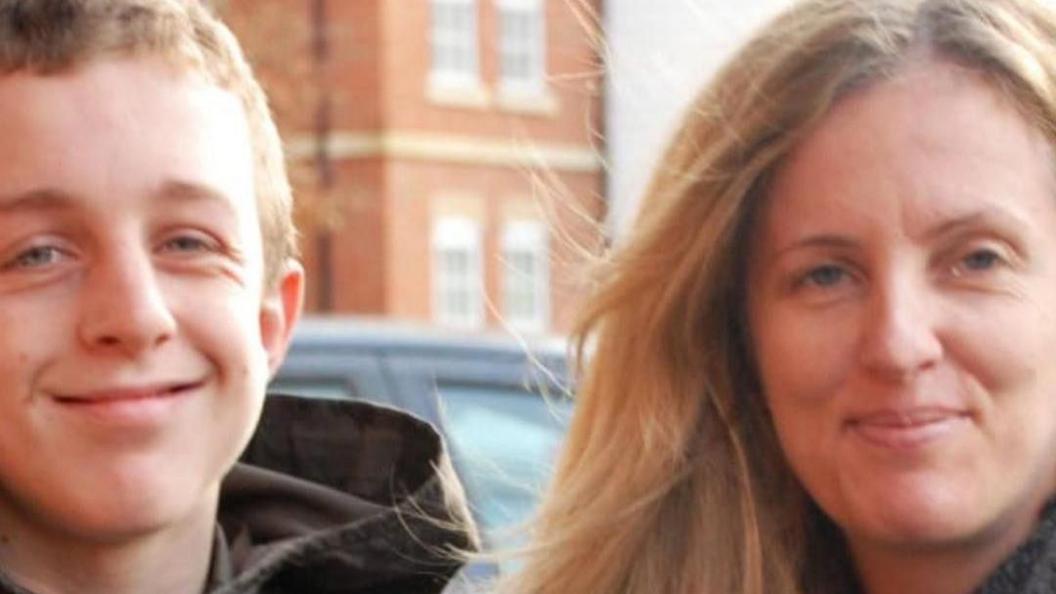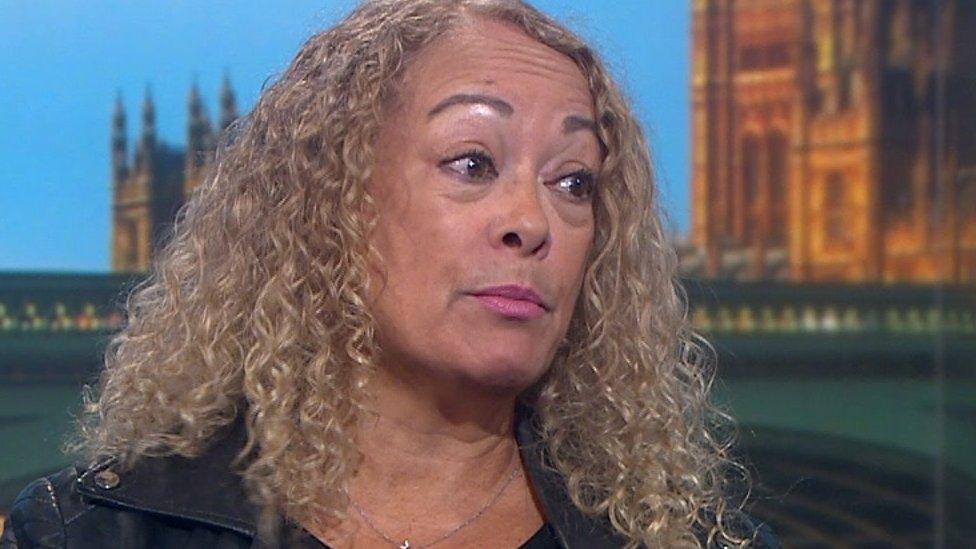'My son did not kill, but is a convicted murderer'

Alex Henry was 21 when he was convicted of murder even though he has not killed anyone
- Published
A woman from Surrey whose son was convicted of murder despite never having killed anyone continues to fight for his release from prison more than a decade on.
On 6 August 2013, Alex Henry and three friends were involved in a confrontation with another group while shopping in London. Henry, then 21, threw a punch and his phone before fleeing the scene.
It was not until later he was told one of his friends had used a knife to kill one of the men. Henry was later convicted of the man's murder under joint enterprise laws.
His mother, Dr Sally Halsall, from Walton-on-Thames, is working with MPs to get her son, and others convicted of murder under joint enterprise, freed from prison.
Henry, who is now 32, was sentenced to 19 years in prison in 2014.
"It's life-changing, it's never the same again, it's a ripple effect for the whole family, it's taken over our lives," said Dr Halsall.

Alex Henry seen here with his mother
Joint enterprise means people who assist or encourage another person to commit a murder can be convicted for the same crime.
In 2016, the Supreme Court ruled the aspect stating a person could be found guilty by association if a court decided they could reasonably foresee the crime, even if they themselves did not intend it, was being misused.
The ruling meant people could no longer be prosecuted for the possibility of foreseeing a crime, but only if they intended to assist in committing it.
Dr Halsall says her son was diagnosed with autism after he was sentenced and believes he would not have known a murder was about to be committed during the confrontation.
Despite another member of his group pleading guilty to murder and admitting the fatal stabbing, the Appeal Court in 2017 rejected Alex Henry's application for leave to appeal his conviction.
The Appeal Court said it found no basis to overturn the original jury's verdict. They also rejected the notion that his autism - which was undiagnosed at the time of his trial - was a mitigating factor and determined that any mental illness was 'immaterial to his culpability for murder'.
Zoe Franklin, the MP for Guildford, recently spoke in parliament about people still serving sentences under laws that have since been abolished or where the legal basis has materially changed.
'Punishment should reflect modern laws'
She is calling for two changes to the government's sentencing bill which she said would create a "fair route" for people to appeal against those sentences.
"The Supreme Court has already admitted that this law is wrong, but there's still no legal way for those convicted to have their cases reviewed," said Ms Franklin.
"We need a justice system that allows courts to review such cases so that punishment reflects the law as it stands today, not as it stood decades ago."
But will it make a difference? Dr Halsall thinks not.
"We keep fighting, but over the last 12 years we have had so many MPs fighting for him but nothing happens," she said.
"An MP can only push and raise your cause, they can't change the law. There will always be people who don't understand."
A Ministry of Justice spokesperson said: "We are aware of concerns that these prosecutions may disproportionately affect some communities. However, it is important that those who do commit crimes are brought to justice.
"We will continue to keep this matter under review."
Update 21 November: This article has been updated to make clear that the Court of Appeal rejected Alex Henry's application for leave to appeal in 2017 and to provide more details about that decision.
Follow BBC Surrey on Facebook, external, on X, external, and on Instagram, external. Send your story ideas to southeasttoday@bbc.co.uk, external or WhatsApp us on 08081 002250.
Related topics
- Published2 February 2024
